Ant Mill
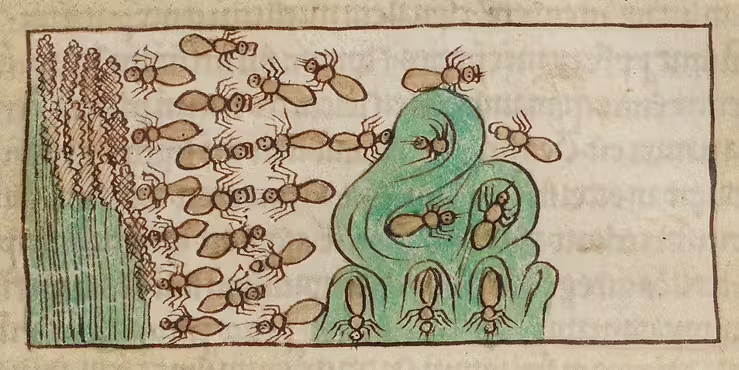
***Trigger warning***
There is sensitive material that alludes to existential despair, suicide, and other challenging material. If that bothers you, please be aware. Thank you.

Your working life starts as exciting.
Maybe you get a job at a local movie theater, start flipping burgers after school, or, if you're lucky, some random job title at your parents company. Some friends tell you about mowing lawns and sweeping leaves for the old folk's house down the way. Shit, you think, I hate those oldies. But then they tell you they give out free sandwiches and lemonade at the end of the day. Not bad. How hard could it be? Not hard at all, you think. It almost sounds too easy.
But man…you want to just hang out with friends and shoot the shit and skateboard, play video games…sit around all day and live.
What else is there?
What are you planning on saving to buy except for shit to make that better?
Why do something hard for something you already have?
You have everything you need.
Why do you need more?
Then something happens, something you weren't expecting: individuation. This process happens gradually, a seeking of independence and autonomy to become your own person, entirely separate from parental influence. Carl Jung explored the idea of individuation while studying a medium who claimed to interact with spirits, theorizing that these tempers were actually "splinter personalities" from the medium's unconscious mind. In America and for most capitalist economies around the world, this process of "splintered personalities,” is necessary to survive on your path of individuation, influenced first by your interests, your passions, your “talent,” as well as family dynamic, social circles, surroundings, and more. But slowly, who you were before this path is lost as you’re forcibly mutated to fit more neatly in this new system you were brought into. And for whom, is not entirely known.
Max Weber, a 19th-century German sociologist, historian, jurist, and political economist, argued that the system of capitalism leads everyone who joins to chase economic gain of some kind. In his work, The Protestant Ethic and the Spirit of Capitalism (1905) Weber argued that modern-day capitalism, purposefully or not, ended up creating a method of pursuit of economic gain where people were trapped in an “iron cage” of institutionalized profit-seeking not by choice, but by economic necessity. To Weber, the "spirit of capitalism" was a moral duty and a virtue.
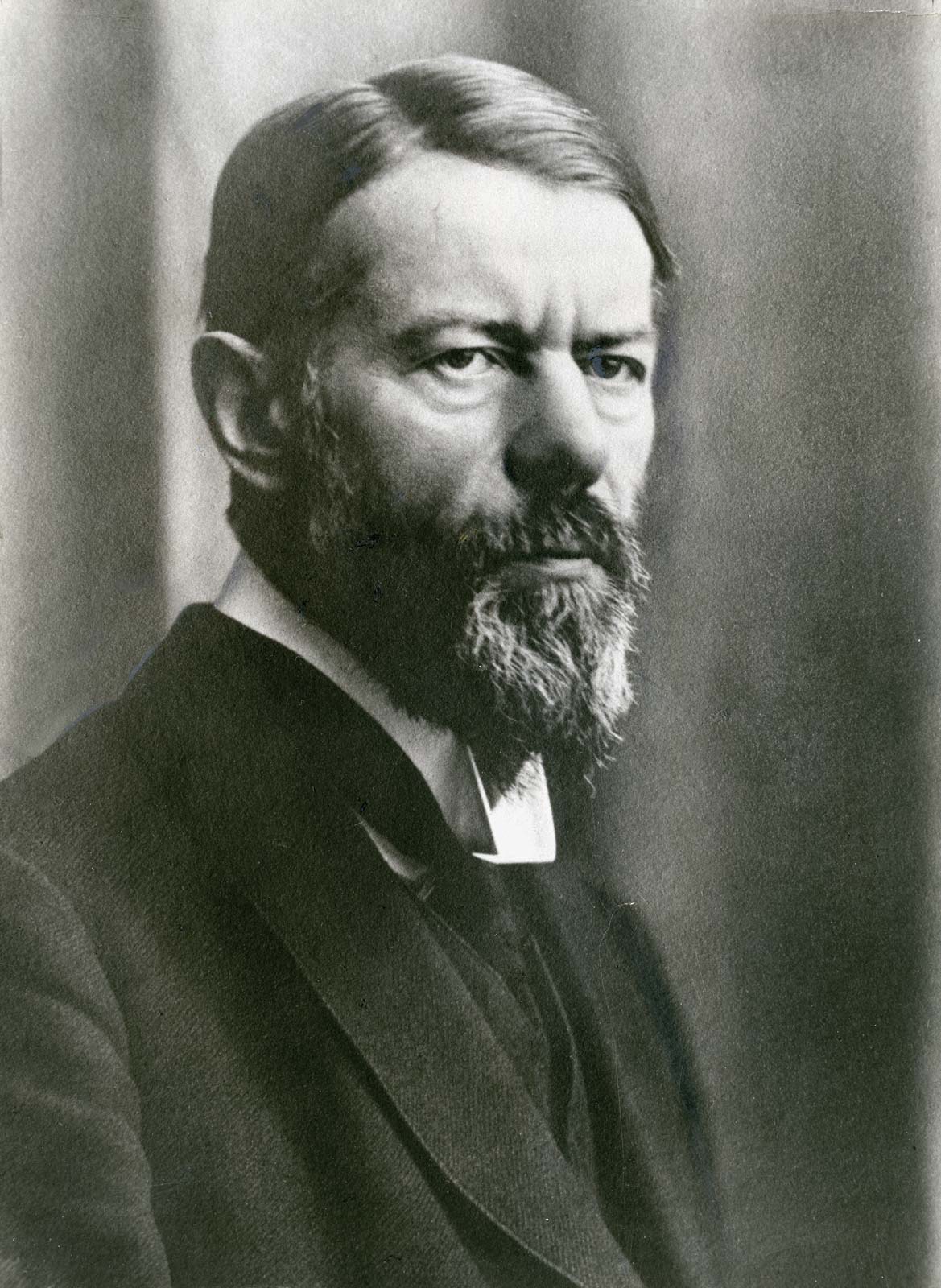
Noam Chomsky would maybe say, You are either taking orders or giving them.
This pursuit propels individuation like a rocket, pushing individuals to develop and monetize your capabilities. Don’t worry about how far off it is from who or what you are because that doesn’t matter in a world where markets follow total sales rev and profitability, rewarding you greatly when it sees fit to keep you in. This ends up transforming your character and personality into an economic/national necessity, where what you can bring to the table, for whom, and what sector supersedes whether you feel human while doing so or not. If anything, that actually just gets in the way.
You are in the “iron cage” remember?
If successful, this more often than not leads to a laser focus on acquiring material success to show the world the success of your individuation and gradual accumulation of wealth, separating you even more from those not as successful as you and thus justifying and affirming your "splintered personality” even more. This may conflict and hinder any development of a more holistic, natural sense of self which, ironically, you had at the beginning of all of this, but just couldn’t see or, were told to deny, hush, and kill. The game was too good, too addicting, too worthwhile. You’ve seen this written about in popular fiction like Fight Club by Chuck Palahniuk, presented below by the always-good-looking Brad Pitt, who infamously said, The things you own end up owning you.
Sociologist Georg Simmel and the philosopher Gilbert Simondon explored the relationship between capitalism and individuation thoroughly. Simmel, for example, argued that the individual in a capitalist society is both enabled and constrained by money, which can influence the development of individuality. Simondon, on the other hand, proposed that the process of individuation is not just a psychological or social process, but also a metaphysical one influenced by the material and technological conditions of society. "The machine is a slave which serves to make other slaves. Such a domineering and enslaving drive may go together with the quest for human freedom,” Gilbert Simondon wrote in his 1958 work, Du mode d'existence des objets techniques (translated as On the Mode of Existence of Technical Objects).
You tend to believe that. You tell yourself, this is the world and the time I’ve been born into so what use is there to even fight it? You convince yourself it would be like swimming upstream but still, somewhere inside of yourself, a voice whispers, no.
So you go on working through high school, those long nights at the movie theater or maybe some retail chain a buddy hooks you up with that pays a few dollars more that covers gas and cigarettes and even some booze because you’re eighteen now and you’re on way to college where you are thinking about a career, thinking about what you actually want to do with rest of your life and get paid for it but you don’t really know, you haven’t had the time to really think about it because you’ve been going to school and then after school you’ve been going to work and sure, you see your friends, but the money is good (it’s ok) and it feels good because it feels like freedom, it feels like options and choices and all the cool stuff you’ve brought yourself to believe as you buy yourself a new phone and that laptop for college and concert tickets and new clothes to fit in with your new friends who also work and maybe go on dates with which always costs a lot of money but your parents are so proud of you, they knew you would get there, they always knew but inside yourself, a little voice whispers,
I’m drowning. I can’t breathe. I can’t see myself in the mirror anymore.
But you don’t listen because you can’t listen because if you stopped, you would have to give up everything, and if you gave everything up, your life up to that point would be for nothing. Unless it’s part of the process, but before you can even meditate and think about that thought, a text comes in, or a FaceTime or a call or an email or a Slack message thrusting you right back into the loop you can’t remember ever stepping into and frankly don’t want to imagine yourself out of it because who would you even be then without it?
When did you let yourself become a stranger to yourself? The voice inside murmurs to you in the middle of the night.
When did you let the fear of falling down keep the real you from standing up?
When do you think this ends? The voice inside asks. In death? In the next life? What if you do the same thing again? What then?
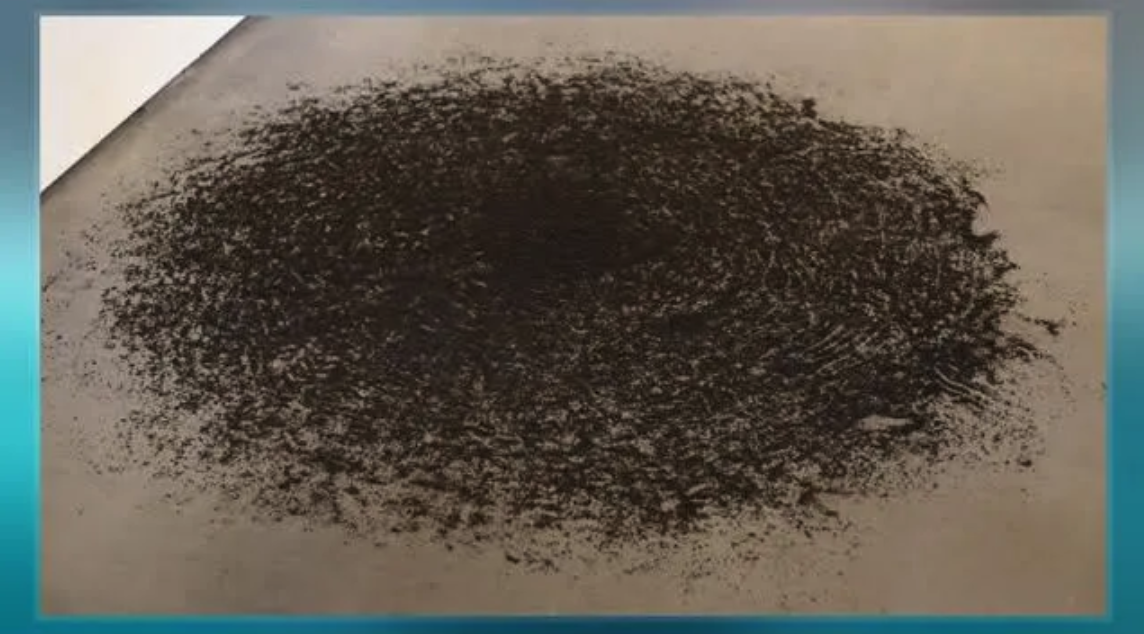
Late one night, wandering around the depths of YouTube, you come across a video of a death ant spiral or “ant mill,” a phenomenon observed in army ants. You learn that all army ants are blind so they use pheromones to follow trails of other ants to forage, travel, etc. but, if a trail loops, they get locked running in an endless circle, trapped in a circular pattern, continuously following the ant in front of them who doesn’t know any better. And yet, they continue.
You think to yourself that would never happen to you. You would surely find a way out and that your body and mind and senses far surpass that of an army of ants. But then you remember you haven’t changed your routine of waking at 7AM and laying in bed for 30 minutes with your phone before getting up to make oatmeal with the same morning podcast and bad coffee with cheap creamer in a windowless kitchen for years but it is what you have to do, it’s what you must do to survive and fit into the colony.
This spiral of death of army ants typically occurs when they navigate in a dense forest or, for the sake of connection, a city with many human beings. As stated, the army ants lose track of their pheromone trails, which they use to communicate and navigate. Recent research suggests that being constantly connected to the digital world through smartphones may reduce the likelihood of approaching behavior, such as smiling in immediate social interactions. In the experiment, strangers who waited together with smartphones exhibited fewer smiles, including genuine smiles, compared to those without smartphones. You have felt lately that even saying hello to strangers feels like an affront. You don’t want it to but it does.
And now you are on the train going to work or home from work - you’re really not sure - and you read this and look up embarrassed, smiling, desperately trying to find someone else on the train who isn’t on their phone. But everyone is, looking at Instagram or X or texting or thinking about texting, and you hear the voice say,
How long have you been lost on this trail?
How long has everyone been with communication or true navigation?
When did you lose track of what’s in front of you?
Did you ever find it at all?
These trails are created by individual ants secreting pheromones, which are then followed by other ants in the colony. The pheromone trails lead the ants to food sources and the colony. The trail pheromone of army ants is a combination of methyl anthranilate and methyl nicotinate, which has a primer effect to prepare workers to follow trails and a releaser effect to cause trail-following. This allows the ants to carry out organized foraging raids guided by the pheromone itself, but when they fall into this loop - this ant mill - it can leads to the ants dying of exhaustion, starvation, or dehydration as they walk seemingly forever in this circle, on and on and on.
Below we see a pile of dead ants in the center as the ones still able to continue circle around them, almost in ritual.
You get off the train and find yourself watching every video that you can find on ant mills, hypnotized by their tiny bodies spinning around and around until one stops dead and then another and another and another. The other ants walk over them, ignoring them completely, because to stop would be to die, to stop would be to realize that you have always been in this spiral and that you know nothing else, you know no one else and ahead of you on the sidewalk someone is getting mugged - someone’s screaming for help - but you can barely move because the taxi cabs in the street are blaring their horns side by side the police sirens and babies are crying from the windows as plane engines roar overhead and a thousand cell phones start to ring when suddenly you realize you are looking down down down into a dark blue and black river and you are so high up on a bridge and passerby’s don’t notice you because they are on their way to work or coming from work or headed to the gym or meeting a friend or grabbing a drink or doing laundry or paying some bills or getting married or seeing a show or going to a funeral with headphones in or head down into the screen and for a second, even though you are so high up, you think you can see your reflection in the water. And you think you can see yourself, your true self, for the very first time and as the wind pushes through your hair and over your skin as it used to when you were a kid when you didn’t need a name, direction, goal, bank account, or reason to exist you feel without need or want; for once, you feel free.
You won’t jump because you’re afraid of the pain you’ll cause, says the voice, but that’s the false individuation making you sentimental to keep you trapped in the spiral, to keep you here, to keep you working, to trick you.
And you step forward, then you step back and you see the moon or the sun cut in half by something flying in the air without body or mind or rhyme or reason or purpose, simply weightless, topsy-turvy void of a nervous system, all soul.
And you’ve never felt more like yourself as the voice asks you,
Who are you with nothing?
If you got an answer, would you open your eyes?
If you didn't, would you close them?
So You've Decided to Become Isolated & Weird Newsletter is a reader-supported publication. To receive new posts and support my work, consider becoming a free or paid subscriber.




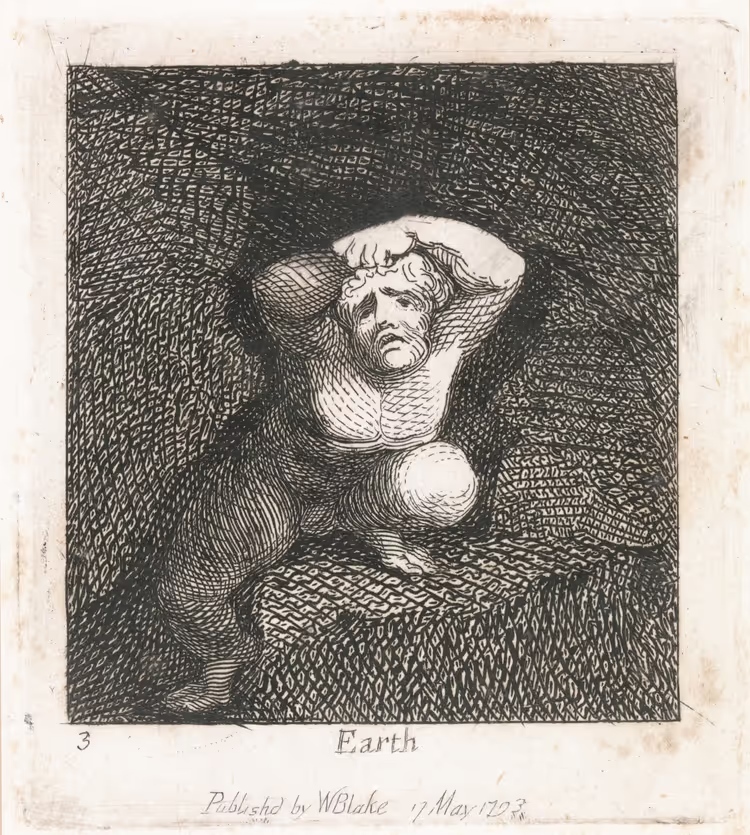
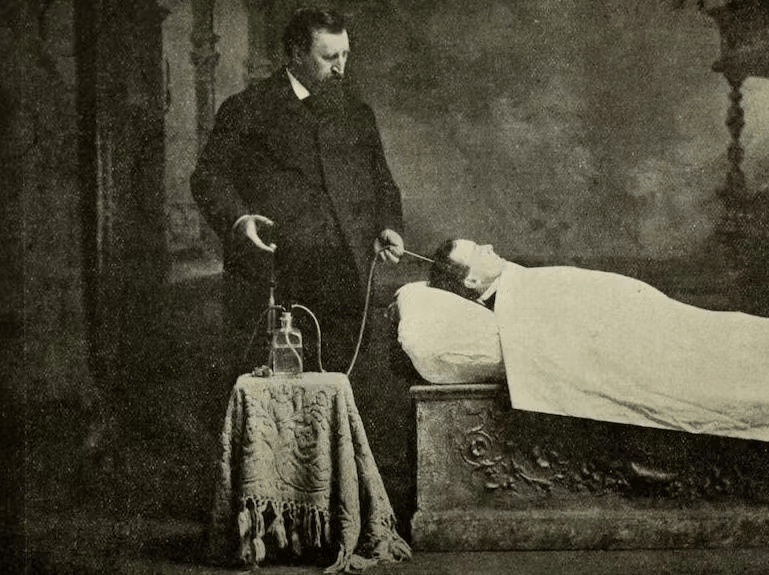
Member discussion